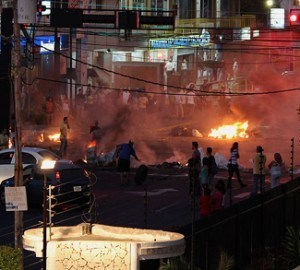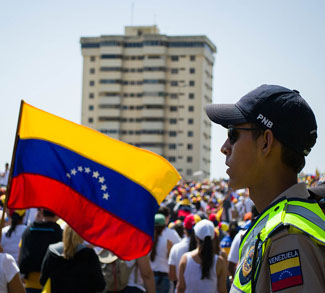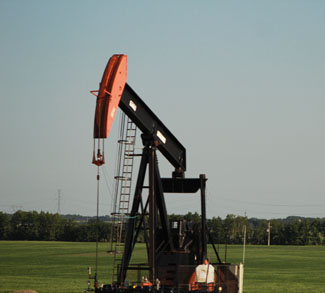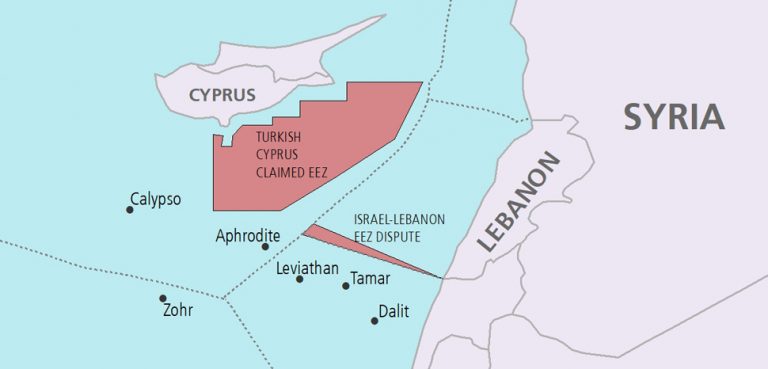Venezuela has been in the grip of nationwide protests since mid-February, when students in the states of Tachira and Merida took to the streets demanding increased security after a student was almost raped on her university campus. Since then the protests have expanded in size, spreading to the capital Caracas and beyond. Their scope has also grown, as the movement is no longer just about law and order, but a myriad of other issues reflecting popular wariness towards the policies of the late Hugo Chavez and his successor Nicolas Maduro.
The official number of people killed in ongoing unrest stands at 39, with casualties reported on both sides of the conflict.
It must be stressed that these protests are being driven by economic problems that are real, persistent, and that defy any easy policy answer from a Maduro government often constrained by its own ideology. They include: runaway inflation (57 percent); shortages of basic consumer goods like toilet paper; a serious fiscal deficit (15% of GDP as of January); decreasing foreign reserves (down 23% in 2013); and falling oil production (the central pillar of the Venezuelan economy).
Yet the composition of the protest movement is more nuanced than a cursory glance at the headlines would suggest. This is not an uprising that transcends the entire political spectrum. Quite the contrary, its support base is clearly delineated along class lines, with middle-class and affluent Venezuelans serving as the movement’s driving force and working-class and poorer citizens maintaining their support for the government in Caracas. This helps to explain why, for all the street chaos and economic malaise, the Maduro government still enjoys approval ratings in the low 40s.
Class boundaries hold all the way up to the movement’s political representation, with center-right and right-wing politicians emerging as the main figureheads. Prominent anti-Chavez politician and protest leader Maria Corina Machado was removed from her seat in the National Assembly last week, and subsequently blocked from the premises by the National Guard. Leopoldo Lopez, another right-wing politician, was arrested on February 18 and accused of inciting violence. Former presidential candidate and moderate Henrique Capriles has been visible in protests in Caracas, but he has thus far stopped short of calling for President Maduro to step down.
National Impact
Protests have been raging since mid-February, and it stands to reason that they will persist for months to come. One reason for this is the country’s deteriorating economic situation, which will likely get worse before it gets any better. Though the government introduced a new “Sicad 2” currency control system this week, and various politicians have been doing interviews in the foreign press and trying to rally investor confidence (President Maduro in the New York Times, Finance Minister Torres in the Financial Times), the economic rot is deep-rooted enough to defy any quick fix, especially one that doesn’t involve major cuts to welfare and price control spending.
Another sign pointing to continued instability is the unwavering resolve of the opposition movement. Many have vowed to keep up the fight until Maduro steps down, and they won’t be inclined to accept a compromise out of the belief that their government is sliding towards dictatorship. This belief may well end up a self-fulfilling prophecy as the Maduro government, faced with a cascading economic crisis, might feel the need for a hard turn towards violence and coercion to reign in public order.
Venezuela’s economic issues should also be viewed in the context of shifts in global energy markets. The technological revolution of ‘fracking’ and potential new suppliers such as Iran could precipitate a drop in global energy prices. Venezuela is a country that is particularly sensitive to such price shocks, and if one were to occur and push down government revenues, Caracas would be faced with a severe economic crisis.
Global Impact
Venezuela exported about 2.78 million barrels-per-day on average in 2013, and if current unrest were to actually impact oil exports there would definitely be an uptick in global prices. However, several analysts have pointed to increased global supply from the US shale boom as providing enough of a ‘cushion’ to global markets that the risk premium of Venezuelan protest has not yet manifested itself in international prices. Increased US production is also serving as a political cushion for Washington, which now has the luxury of not having to get its hands dirty and meddle in regional affairs in order to shore up global energy supplies.
Oil accounts for 96% of Venezuela’s exports, and almost half of its government revenue, so the potential impact of ongoing instability on commodities outside of the energy sector is relatively small.
Some are framing the political crisis in Venezuela as a fight for the political ‘soul’ of Latin America. On one side there’s the democratic, neoliberal-lite clique who stress the poverty-alleviation benefits of economic development through trade. They might point to Lula’s Brazil as their supporting example. On the other side there’s the state-interventionists who rallied around the more active redistributive aspects of Hugo Chavez’s “Bolivarian Revolution.” A prominent voice in the former group is Nobel prize-winning author Mario Vargas Llosa, who recently flew to Venezuela to show his support for the opposition movement.
There may be some truth to this argument, especially given the recent struggles by another of Latin America’s pseudo-isolationists in Argentina. Both countries have spurned the dictates of global capital in the past decade, and both have more recently been made to moderate their stance in the face of deteriorating economic outlooks.
Thus, if persistent instability and stunted policymaking lead to a complete collapse of the Venezuelan economy, it’s very possible that the dream of a continental Bolivarian Revolution will collapse along with it.




